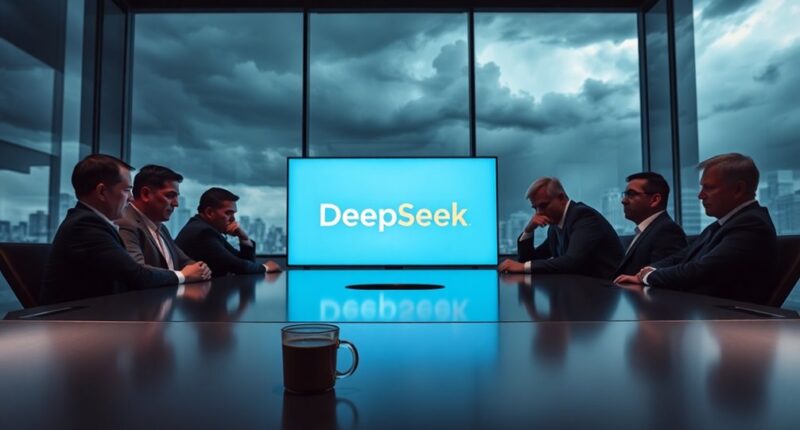You've likely heard the buzz surrounding DeepSeek and the rush to ban it. Concerns about national security and privacy are at the forefront, especially with its data stored in China. Lawmakers are alarmed by the potential for surveillance and manipulation. But what's driving these global decisions? The implications stretch far beyond individual users, touching on U.S.-China relations and the future of AI technology. The bigger picture might just shock you.

In recent months, lawmakers have scrambled to address rising national security concerns surrounding DeepSeek, a controversial app that stores user data on servers in China. You might be surprised to learn that this app's data collection policies raise significant privacy risks. With user data stored in a country where the government has broad access rights, there's a real fear that U.S. users could be subject to surveillance. Chinese law permits the government to access data from companies based in China, meaning your personal information could be at risk without you even knowing.
Moreover, DeepSeek's potential for influence campaigns and disinformation is alarming. By leveraging user data, the app could target messaging to change behavior subtly. Imagine a scenario where your online habits are manipulated through tailored content, all while the app suppresses information on sensitive topics like the Tiananmen Square protests, aligning with Chinese narratives. This censorship doesn't just affect individuals; it can alter global perceptions and promote authoritarian views worldwide.
In response, lawmakers are stepping up with proposals to ban DeepSeek on government devices. This isn't just a partisan issue; there's bipartisan support reflecting widespread concern over data security. Countries like Australia and Taiwan have already taken steps to restrict its use on government devices, and states like Texas are following suit with their own limitations. The global coordination of these actions highlights a collective effort to protect user data and national security.
However, the implications of DeepSeek extend beyond immediate data privacy risks. The app's emergence signals a rapid advancement in China's AI capabilities, raising fears that the U.S. may fall behind in this critical area. Its generative AI features pose significant privacy risks, potentially revealing your interests and strategies to unwanted parties.
Meanwhile, cybersecurity concerns loom large, especially given DeepSeek's vulnerability to large-scale malicious attacks. Amidst these tensions, the backdrop of U.S.-China relations becomes even more complicated. The parallels with the TikTok controversy underscore the broader worries associated with Chinese tech companies and data security.
As discussions around export controls on technologies supporting DeepSeek's AI infrastructure intensify, the challenge for Western governments is to balance innovation with safeguarding national security. You can see how the need for international standards on AI data privacy and security is becoming more critical than ever.









